Cassie Gorman
Staff. English Literature.
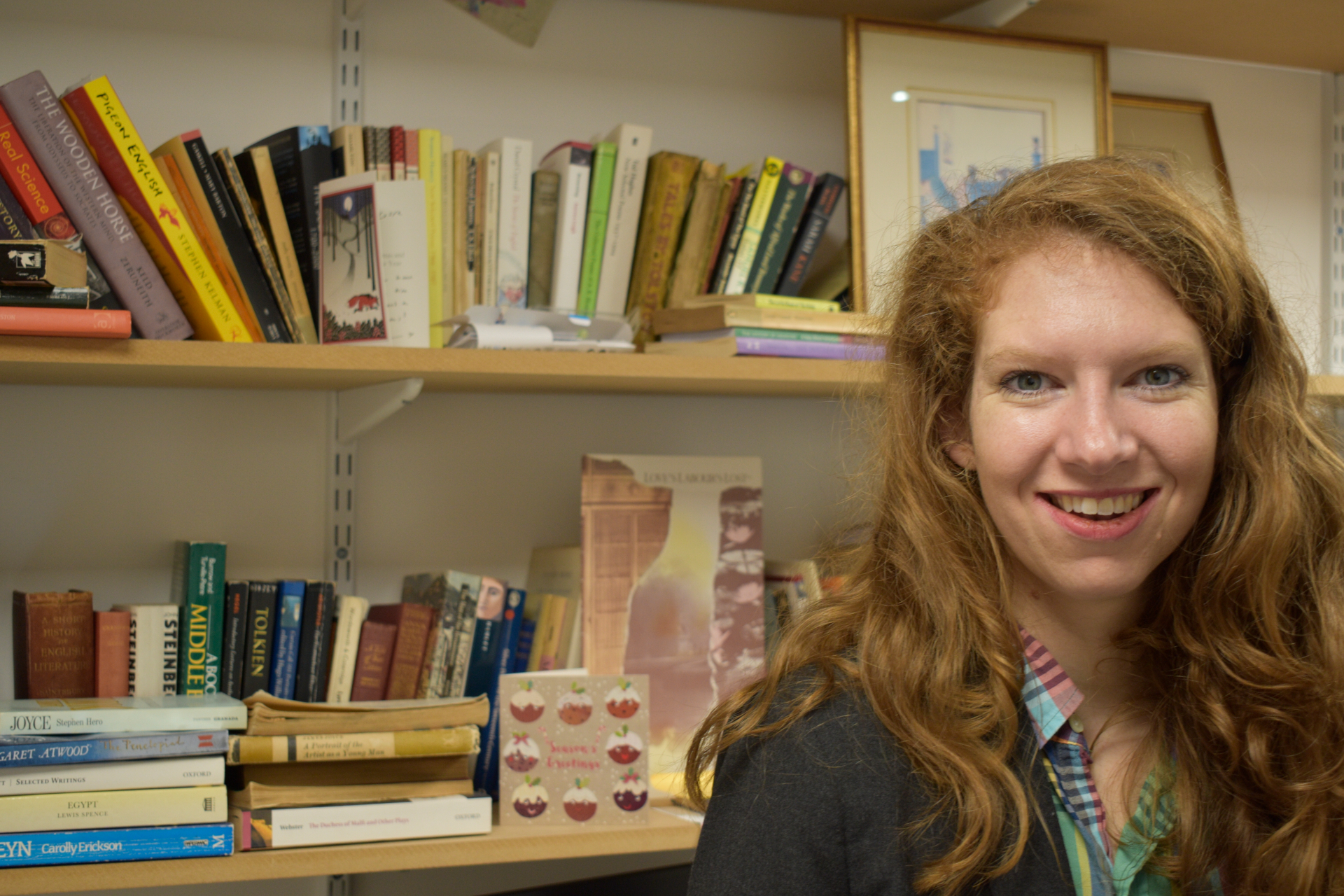
Dr Cassie Gorman is an Associate Professor in English Literature at ARU, and Course Leader for our BA English Literature degree. Her research interests revolve around the intersections of long 17th century literature with science, and she is author of the monograph The Atom in Seventeenth-Century Poetry.
What inspired you to do what you do now?
When I was at sixth form college, studying humanities and arts A-levels – I was doing Spanish, English, Drama and History - I was convinced that I was going to study history at university. But I found I was better inclined to studying past times, other places, and other perspectives through literary study. It was the expansive critical and creative freedom that really appealed. By studying literature you’re studying a bit of everything - you’re studying the world, even beyond the world in some cases, and all the people and living things within it. It’s part of the humanities in the sense that it’s about people, and their voices and experiences, and you can learn so much from studying different perspectives across space and time. That really appealed to me.
As a child, I was always reading. I was the kind of kid who would bring a book to the party. This is maybe a bit of a cliché for someone growing up in the 1980s or 90s, but Roald Dahl books, I just devoured them, and Harry Potter. When I was 8 or 9, we moved house and I changed schools – it was a tradition at my primary school to donate a book to their library when you left, and I had recently read Harry Potter and the Philosopher’s Stone. It had just come out at the time, and I loved it so much I donated a copy to the library. But it was before Harry Potter was well known, and because the school was Church of England and concerned about the topic of witchcraft and wizardry, they turned it down. I’m sure they wouldn’t turn it down now!
What’s the most valuable thing you took away from your own education?
Reading widely, and getting into conversations – verbally and also in writing – about different perspectives. Broadening my mind, my worldview, and learning more about different opinions and different ways of being.
Also, the ability to think critically when engaging with different sources and opinions, which is especially timely at the moment. It’s so important to learn to think critically, sensitively and with nuance.
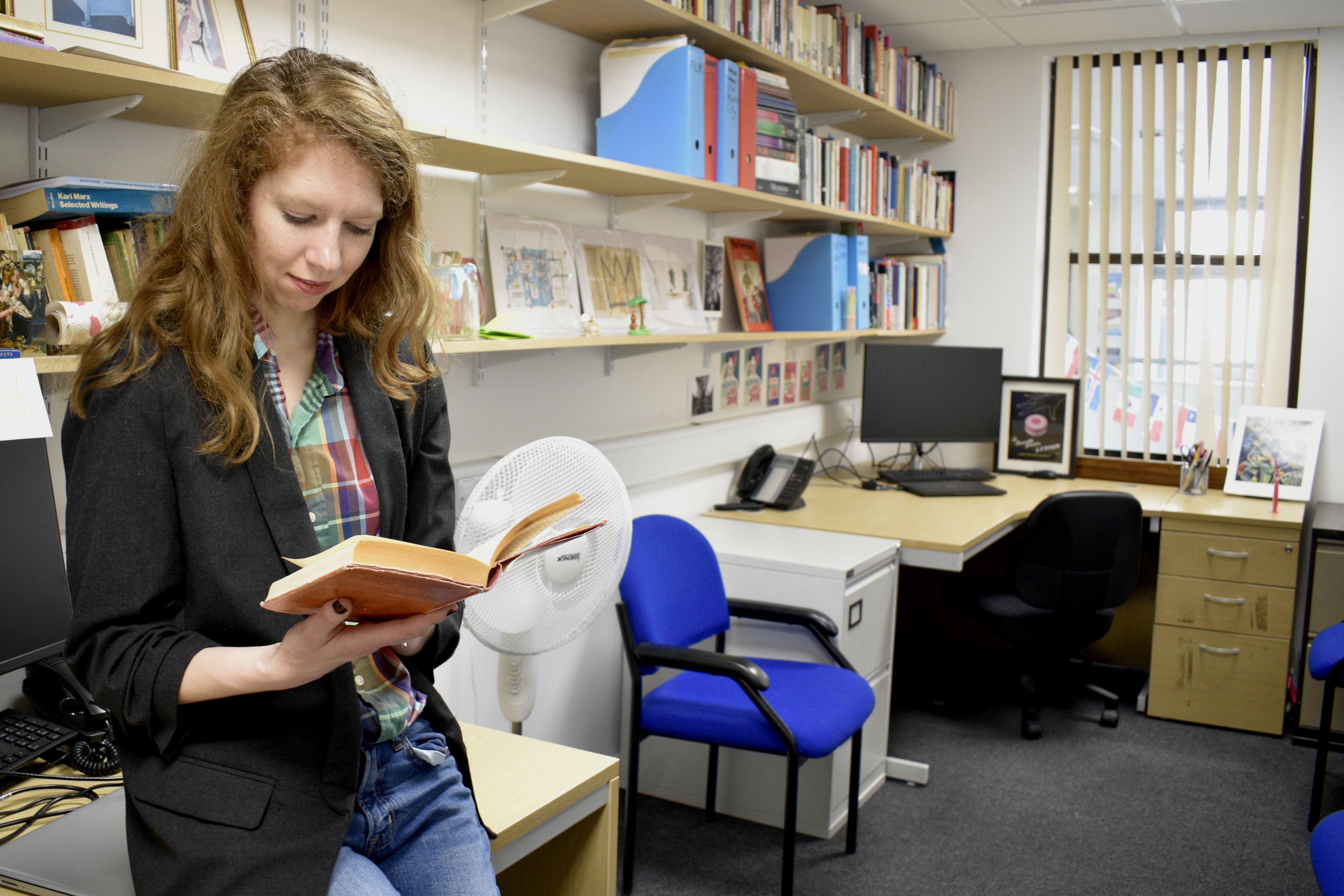
What piece of advice would you give to your younger self?
I was fairly confident with my writing, but when it came to being in a class, or a tutorial, I’d feel quite shy about speaking or sharing an idea verbally in front of others. Now, I would say to that younger self, “you have that space to try out ideas, and to enter into dialogue and debate with your observations.” If I could give my younger self that confidence to take up more room in that space I certainly would.
One thing that I like to do with undergraduates is to talk about what a seminar is. We have a mixture of classes at ARU with some more traditional lectures (where the lecturer presents a topic), but seminars are more workshop-based and very interactive. As a tutor, you’re there to set up the conversation and spark the discussion, but it’s really all about the students testing and workshopping ideas, and entering into conversation with each other. So we talk about what a seminar is, what it means, and I ask the students what they expect from it as well as me. I want to establish a safe place: a place where people feel happy to try out ideas, to know that if they do say something that perhaps isn’t fully on target, or if they’ve misinterpreted something slightly, that it doesn’t matter. It still enters the discussion, it can still be productive, and nothing’s lost. Also, I want to encourage everyone that there’s no such thing as a stupid question.
What have you learned about Cambridge that other people might not know?
I’ve been teaching at ARU for 6 and a half years, but I actually have a longer history with Cambridge as I first moved to the city in 2006. I love Cambridge. It’s arty. It’s got lots of free museums. It’s got great pubs and cafes, bars and restaurants. In the summer it’s lovely, because there’s a lot of outdoor culture.
But Cambridge can also feel small – it’s quite an intense place and the centre is quite compact, so I would recommend getting out of town a bit. There’s so much just outside of the city centre. Take a walk by the river, starting at Jesus Green, which is very central, and go over Midsummer Common, on to Stourbridge Common, up to the little village of Fen Ditton which is near Cambridge North train station. It’s a lovely walk; you’ll pass all the houseboats on the river and end up at a nice pub in the village. Just enjoying that kind of walk, the countryside and the fen lifestyle in Cambridge is good for the soul.
Also, I used to study at Girton College, which is a couple of miles out of Cambridge, and there was always this joke that no students who aren’t at Girton ever make it to visit because it’s a million miles away. But it’s actually very accessible! It’s beautiful, the grounds are open to anyone, and the village of Girton is worth a walk around. It’s nice to get away from the hustle and bustle sometimes.
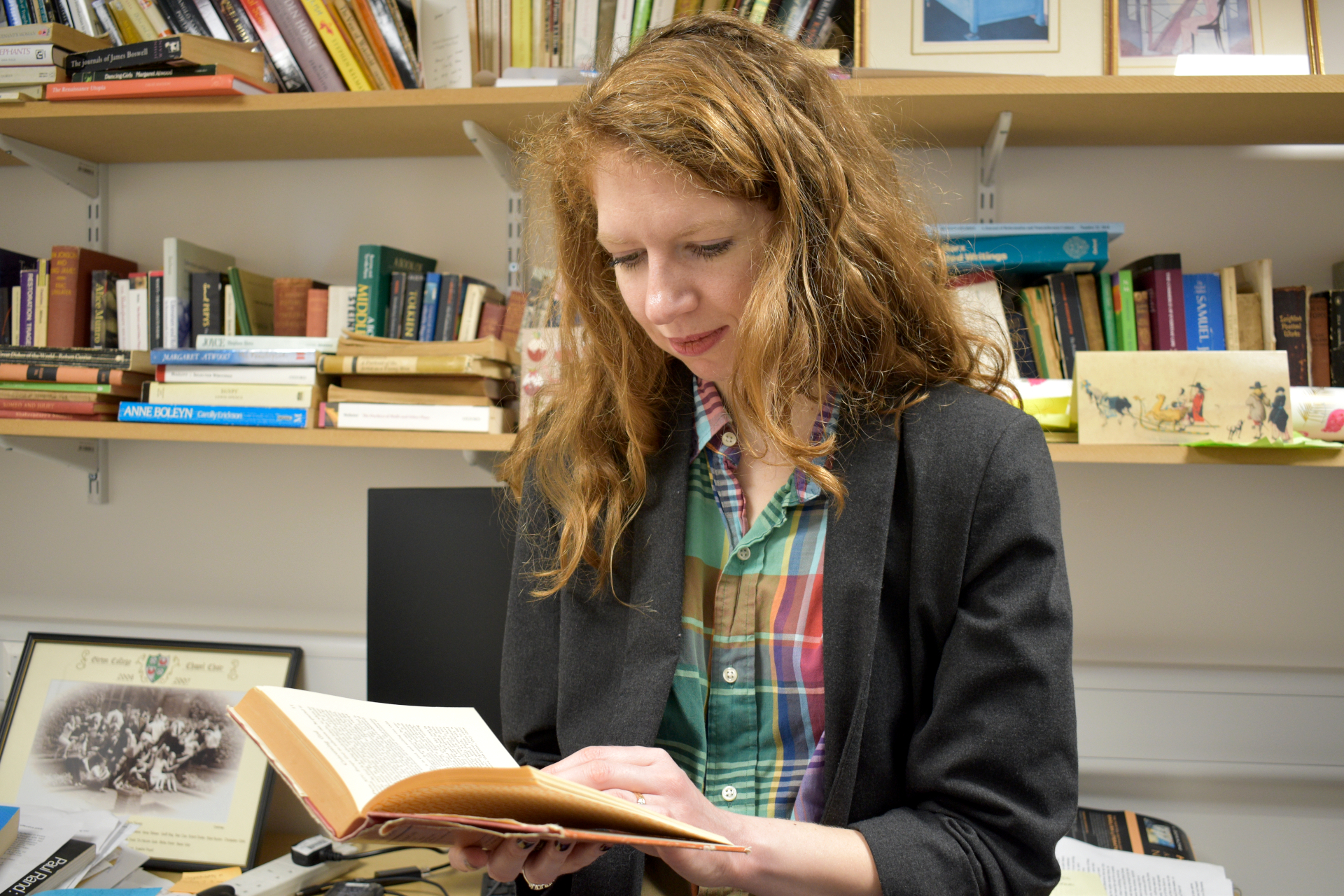
What projects are you currently working on, both at ARU and outside?
At the moment, a lot of my research is external facing. I’m starting a broad project on women writers (specifically poets) from the 16th and 17th centuries, focusing especially on women who were writing poetry in manuscript, not for print. This will be very archival, with lots of library trips and digging up manuscript sources. I’m interested in how women during this period were engaging knowingly with scientific or natural philosophical ideas in poetic texts that haven’t been studied much – in some cases barely been read, in many cases not been published or digitised more widely. At the beginning of my research, I’m finding all these interesting cases that are learned responses to astronomy, or “wow, there’s some alchemy here”, or “they’re really thinking about meteorology, they’ve clearly read x, y, z.” So I’m interested in teasing those things out.
I’m also exploring how women were writing about scientific topics in texts that aren’t primarily scientific in purpose. This raises questions about form and genre: if you’re writing theological lyrics, for example, that are personal and private in manuscript, why are you engaging with alchemy? Where does that come from, and what is it contributing? One of the writers I’ve looked at, Hester Pulter, compiled around 120 original poems into a manuscript across several decades, and she brings references to alchemy, atomic theory, astronomy and herbology (amongst other sciences) into play with devout, devotional reflections. Another, poet I’m studying, Dorothy Calthorpe, composed a little-known prose-poem about ascending into outer space and meeting a celestial stranger.
I’m also organising a series of workshops about Northern European intellectual migration in the 16th and 17th centuries. I’m working with a colleague from the State University of Milan, Stefano Gulizia, and we’re visiting a few European locations – we had a workshop in Aberdeen in October 2022, and we’re going to Sweden in March and Prague next autumn. Again, we’re digging in the archives and looking at how, in these various European centres, as a consequence of social unrest, war violence and numerous shifting networks, scholars were travelling from place to place and bringing their ideas with them. We’re especially putting the spotlight on astronomical and medical knowledge. In part, this is to show how ideas travelled across Europe, but also to go to archival collections that aren’t so well known to English scholarship and say “Here’s what’s here, and this is interesting. Let’s do something!”
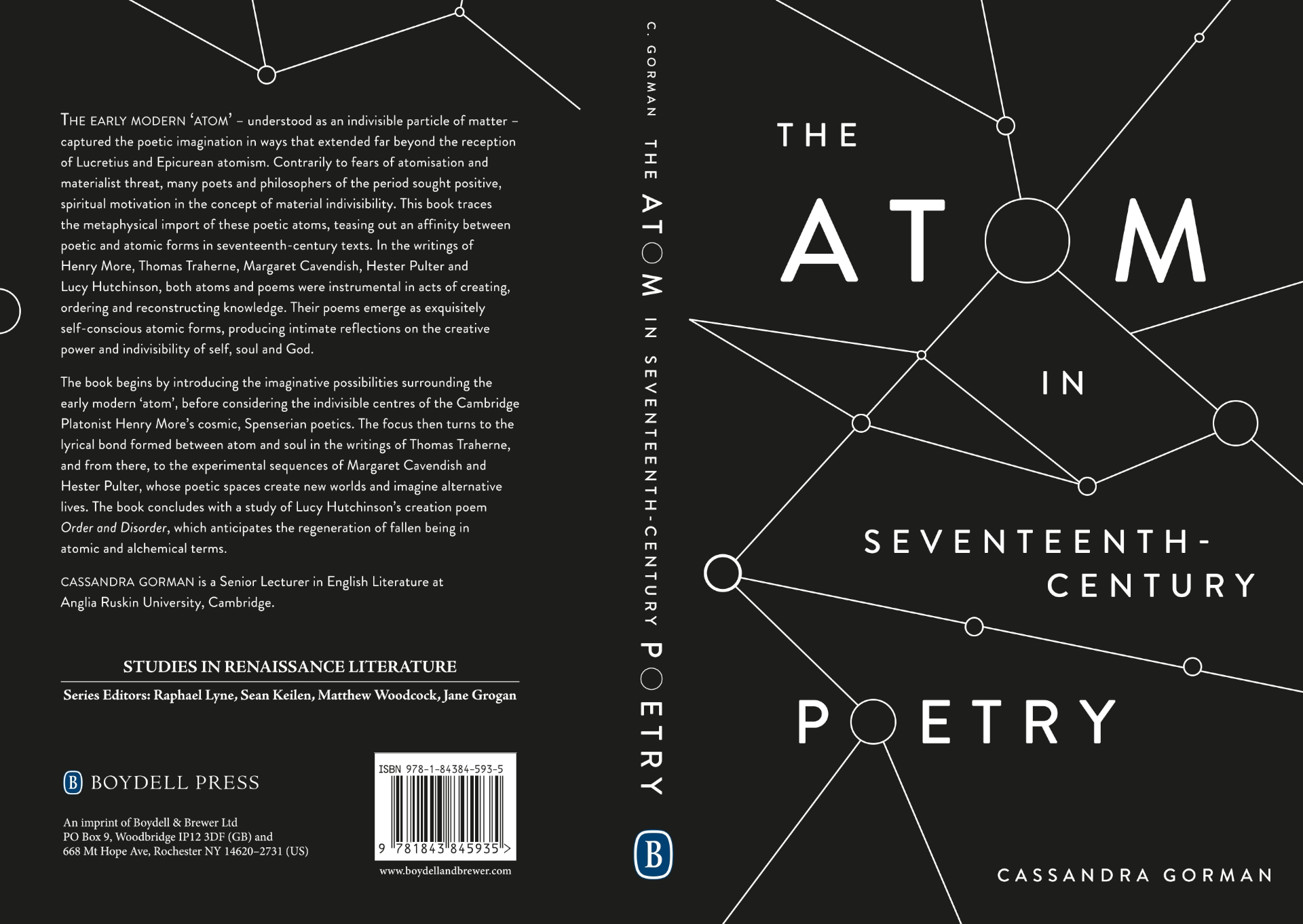
Where now
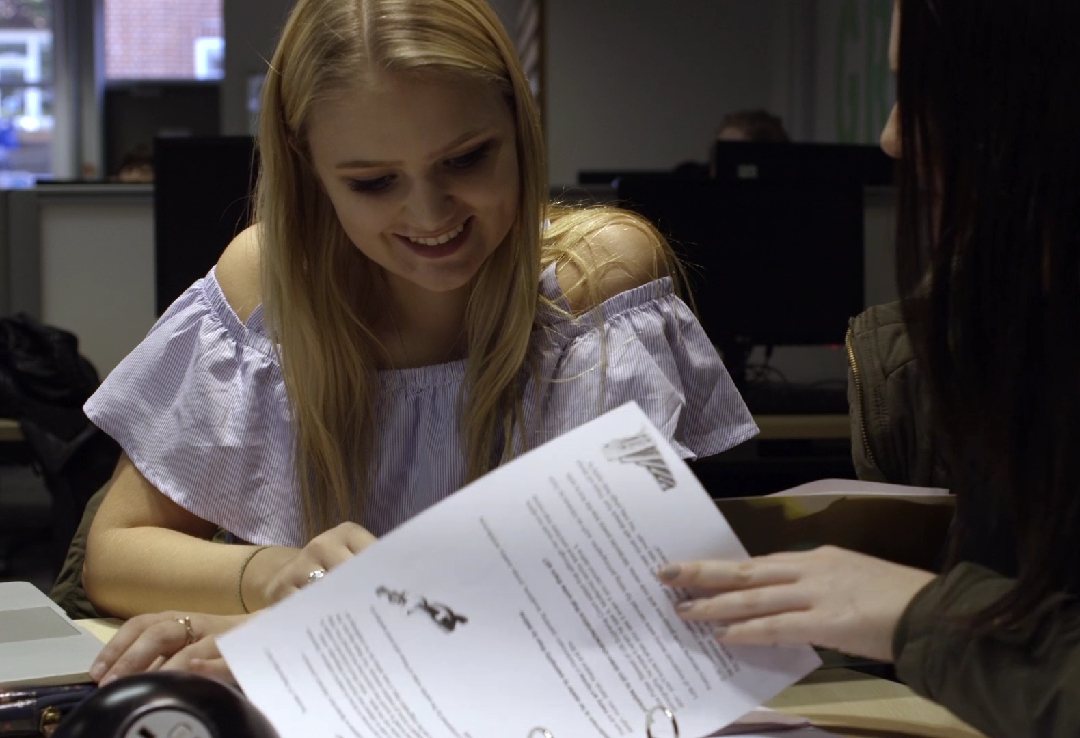
ARU website
BA (Hons) English Literature
Explore how literature has reflected and influenced different societies over the centuries and prepare for many careers – some you might not even have thought about yet – on our BA (Hons) English Literature degree in Cambridge.
Find out more
ARU Spotlight Podcast
Dr Cassie Gorman, Course Leader BA English Literature
Listen to the full interview with Cassie on Spotify.
Listen now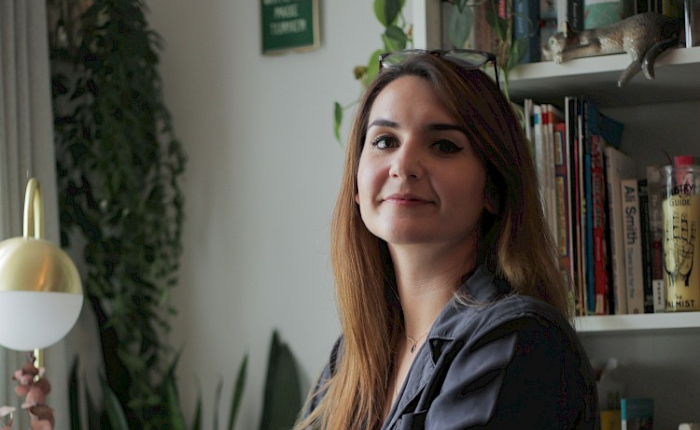
People
Jade Slaughter
Jade Slaughter studied both her BA English Literature and MA Creative Writing at ARU, and is now Creative Content Manager for Scouts, the UK’s largest co-educational youth movement. Leading a team of content producers specialising in writing and design, they collaborate with studios and freelancers to produce digital, print, social and film content for the charity.
Meet Jade